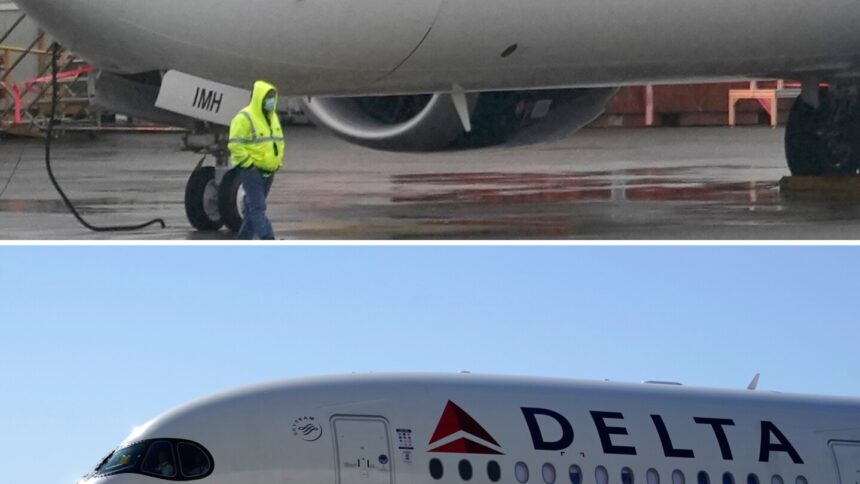U.S. Transportation Secretary Sean Duffy has announced a significant move against Delta Air Lines and Aeromexico, revoking their antitrust immunity due to concerns about an uneven playing field for U.S. airlines in the Mexican aviation market. This decision comes after Duffy’s persistent warnings that Mexico’s limitations on passenger and cargo flights to Mexico City are undermining fair competition.
Since 2016, Delta and Aeromexico have enjoyed joint pricing, scheduling privileges, and revenue-sharing under the antitrust immunity. However, Duffy stated that safeguarding this arrangement no longer makes sense given Mexico’s policies favoring its domestic airlines over U.S. competitors. He specifically criticized the forced transition of cargo operations from Mexico City’s Benito Juarez International Airport to the newly constructed Felipe Angeles International Airport, which is situated over 30 miles from the city center and has been largely overlooked by major international airlines due to its inconvenient location.
The Transportation Secretary indicated that these actions by Mexico violate trade agreements between the two nations and represent an unfair advantage for domestic carriers. He emphasized the need for “definitive action” from Mexico to level the playing field, expressing his frustration over what he described as “empty promises.”
Mexican President Claudia Sheinbaum responded to Duffy’s assertions by defending the decision to shift operations as a necessary technical measure aimed at alleviating congestion at Benito Juarez. She dismissed the notion of sanctions, insisting that the transfer was not directed against U.S. airlines but rather a logistical necessity. She acknowledged that while some U.S. companies had expressed complaints, they had ultimately adapted to the new arrangements.
Both airlines have expressed disappointment over the Secretary’s decision but have not yet indicated whether they will challenge it. They argue that they should not be penalized for the actions of the Mexican government and warned that the decision could adversely impact the economies of both Mexico and the United States. With over 40 million passengers traveling to Mexico last year, the airlines have highlighted the extensive connectivity they provide, stating that the dissolution of their partnership could deter about 140,000 American tourists and nearly 90,000 Mexican tourists, leading to a decline in tourism revenue.
In their regulatory filings, Delta and Aeromexico maintained that their alliance has not hindered competition, pointing to the recent expansions of competing airlines such as Viva and Volaris at Benito Juarez, particularly following the collapse of Interjet during the pandemic. Despite Duffy’s order, which is set to take effect in January, the airlines will continue to operate as usual until that time, with no immediate changes to their flight operations or loyalty programs.







